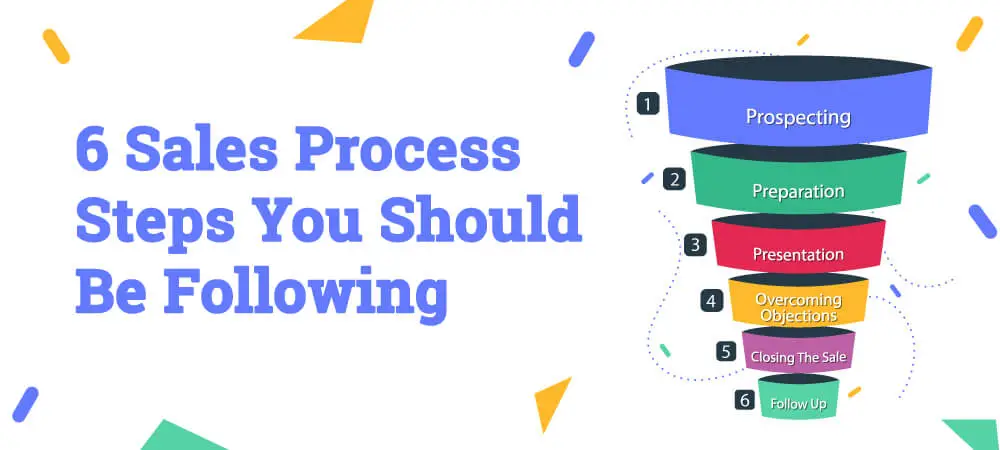Automating the Sales Process – A Trifecta Approach
I. Introduction: When we look at sales processes today we see a lot of redundancy and old age practices still being used, leading to a loss of resources and time. In this article we will look at automating the sales process in a 3 way approach. Before we do that let us have a look at some interesting statistics which will give you a better understanding as to why automating sales process is important;
- 78% of B2B businesses use marketing automation, and the adoption rate is growing rapidly (HubSpot, 2023).
- 60% of sales professionals say AI/automation tools are important to their overall sales strategy (HubSpot, 2023).
- 57% of sales professionals agree that by 2024, most sales pros will use AI/automation in their role (HubSpot, 2023).
Process:
- Automating repetitive tasks can save salespeople 30% of their time, allowing them to focus on higher-value activities (Salesforce, 2022).
- Companies that streamline their sales process see a 10% increase in win rates (HubSpot, 2022).
Technology:
- Marketing automation can increase lead generation by 451% (Oracle, 2021).
- Sales automation tools can reduce administrative overhead by 3.4% (Marketo, n.d.).
- Chatbots can qualify leads 50% faster and at 25% lower cost than human reps (Drift, 2023).
People:
- AI tools help sales reps use data to optimize the sales process, leading to a 31% improvement (HubSpot, 2023).
- Sales professionals who use AI/automation say the biggest benefit is saving time on tasks, allowing them to spend more time selling (38%) (HubSpot, 2023).
Unifying the Trifecta:
- Sales organizations that embrace automation experience a 14.2% rise in sales productivity and a 12.2% drop in marketing expenses (Oracle, 2021).
- 8 in 10 marketing automation users see an increase in the number of leads, and 77% witness an increase in conversions (Oracle, 2021).
- 80% of businesses believe investing in AI and automation will give them a competitive advantage (McKinsey & Company, 2022).
- Companies that adopt a holistic automation approach experience faster growth, higher ROI, and improved customer satisfaction (Forrester Research, 2023).
Automating sales Process
A. The Shifting Sales Landscape:
- Discuss the increasing competition, demanding buyers, and shorter attention spans in today’s sales environment.
- Highlight the challenges of manual processes in keeping up with the pace and complexity of modern sales.
B. The Power of the Trifecta:
- Introduce the concept of the trifecta of sales automation: process, technology, and people.
- Briefly explain how each element contributes to a unified and successful automation strategy.
C. Unveiling the Benefits:
- Enumerate the key benefits of the trifecta approach:
- Increased Efficiency: Free up reps’ time for high-value tasks, reduce administrative burden.
- Enhanced Personalization: Deliver tailored experiences based on buyer behavior and preferences.
- Data-Driven Decisions: Leverage insights to optimize campaigns, identify opportunities, and personalize interactions.
- The Human Touch Remains: Empower reps to focus on building relationships and closing deals.
- Scalability for Growth: Adapt and expand your sales efforts seamlessly as your business grows.
II. The Three Pillars:
A. Process: The Foundation:
- Explain the importance of analyzing your current sales process to identify:
- Key stages and touchpoints.
- Bottlenecks and inefficiencies.
- Opportunities for automation.
- Emphasize defining clear goals and desired outcomes for automation (e.g., faster lead response times, improved conversion rates).
- Discuss streamlining and optimizing the process for efficiency and automation compatibility (e.g., standardizing data entry, eliminating redundant steps).
B. Technology: The Enabler:
- Guide readers on choosing the right tools based on their specific needs and budget:
- CRM platforms for managing leads and customer data.
- Email automation software for personalized outreach sequences.
- Chatbots for handling basic inquiries and lead qualification.
- Social media management tools for automated engagement and lead generation.
- Stress the importance of seamless integration with existing systems and data flow to avoid silos and ensure unified insights.
- Advocate for user-friendly tools that empower and enable your team, not overwhelm them with complexity.
C. People: The Heart of Sales:
- Underscore the crucial role of training your sales team on using the new automation tools effectively.
- Emphasize fostering a culture of continuous learning and adaptation to embrace the changing landscape and new technologies.
- Discuss empowering your team to focus on high-value interactions like:
- Building relationships and trust with prospects.
- Negotiating deals and closing sales.
- Providing exceptional customer service.
- Explain how to leverage data insights from automation to personalize interactions and make data-driven decisions for improved success.
III. Unifying the Trifecta: A Symphony in Action:
- Provide a detailed example scenario showcasing how the three elements work together in a seamless flow.
- A prospect visits your website and fills out a form, triggering an automated welcome email based on their interests.
- The CRM captures their information and assigns them to a rep who receives real-time notifications.
- The rep leverages data insights and personalized content to nurture the lead through relevant email sequences.
- A chatbot answers their initial questions while the rep focuses on scheduling a personalized call.
- Highlight the importance of continuous evaluation, refinement, and adaptation.
- Regularly assess the effectiveness of your automation and make adjustments as needed.
- Stay updated on emerging technologies and adapt your approach accordingly.
Thanks for reading Article on Automating sales process in trifecta approach written by Rajdeep Chauhan.
If you are looking for sales automation services feel free to connect to us at Pulse







